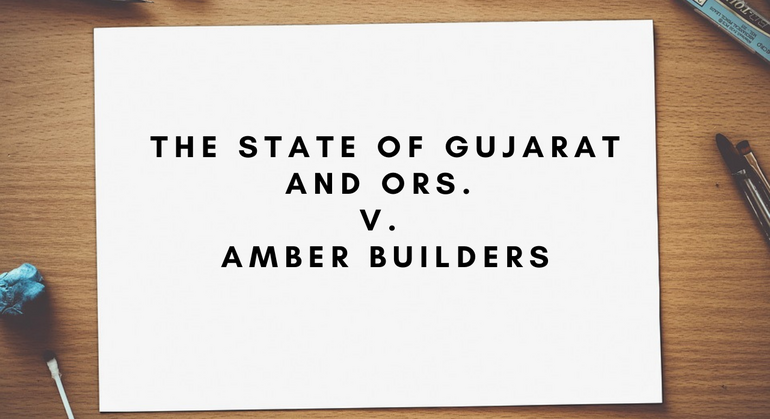

The State Of Gujarat and Ors. v. Amber Builders
This is a case of arbitration and in this case, it has been clarified that the Gujarat Public Works Contract Disputes Arbitration Tribunal can grant an interim injunction under its powers to grant interim relief.
Facts
Amber Builders is a contractor that was awarded a contract by the State of Gujarat for strengthening a section of a national highway. It is undisputed that the contract was in the nature of a works contract. Afterward, a dispute arose between the two parties concerning the duty of the Amber Builders to remove defects from some damage to the road. The State of Gujarat by a notice called upon Amber Builders to pay a sum for not carrying out the road repair work according to the contract. The State of Gujarat had further threatened to withhold the payments from the security deposits and bills of other pending works.
This notice was challenged by Amber Builders by filing a writ petition before the Gujarat High Court. It raised the ground that the State of Gujarat was not competent to withhold the amount payable to Amber Builders under other contracts or recover the amount from payments made under other contracts until the liability of Amber Builders was determined. Further, Amber Builders contended that such a sum has to be determined and quantified by the court. On the other hand, the State of Gujarat placed reliance on the contract and contended that since the work of Amber Builders was defective, it had got the work done from another person at the risk of Amber Builders.
The High Court in Amber Builders v. State of Gujarat (2016) gave judgment in favor of Amber Builders, holding that without crystallization or qualification of the sum sought to be recovered, the employer or the contractor cannot unilaterally recover the said sum from the ongoing contract work of the same contractor in connection with another contract. It further held that the State of Gujarat could not recover the sum sought to be recovered from the payments due and payable to Amber Builders in other contracts.
The High Court’s judgment was challenged by the State of Gujarat before the Apex Court on the procedural ground that the High Court lacked jurisdiction to hear the dispute since the dispute had to be compulsorily referred to the Tribunal and the Tribunal has the power to grant interim relief in the form of an interim injunction.
Thus, The dispute here is regarding the Gujarat Public Works Contract Disputes Arbitration Tribunal constituted under Section 3 of the Gujarat Public Works Contracts Disputes Arbitration Tribunal Act, 1992, and whether it has the requisite jurisdiction to make interim orders in terms of Section 17 of the Arbitration and Conciliation Act, 1996.
Judgment
The Court observed that the Gujarat Act was enacted to compulsorily refer all disputes arising out of any "works contract" entered into by the State government or public sector undertaking with any other person, for certain defined works under the Gujarat Act. In this case, it is not disputed that the contract entered between the parties is a "works contract", and that the Gujarat Act is applicable to the parties. Therefore, on a conjoint reading and careful analysis of the Arbitration Act and the Gujarat Act, the Court held that the powers vested in the arbitral tribunal under section 17 of the Arbitration Act can very well be exercised by an arbitral tribunal constituted under the Gujarat Act because there is no inconsistency in the two statutes as far as the granting of interim relief is concerned.
The Court was further of the view that the decision in Gangotri Enterprises Limited v. Union of India is per incuriam since it relied on Union of India v. Raman Iron Foundry, which has been specifically overruled by the three judges bench ruling in H.M. Kamaluddin Ansari & Co. v. Union of India.



